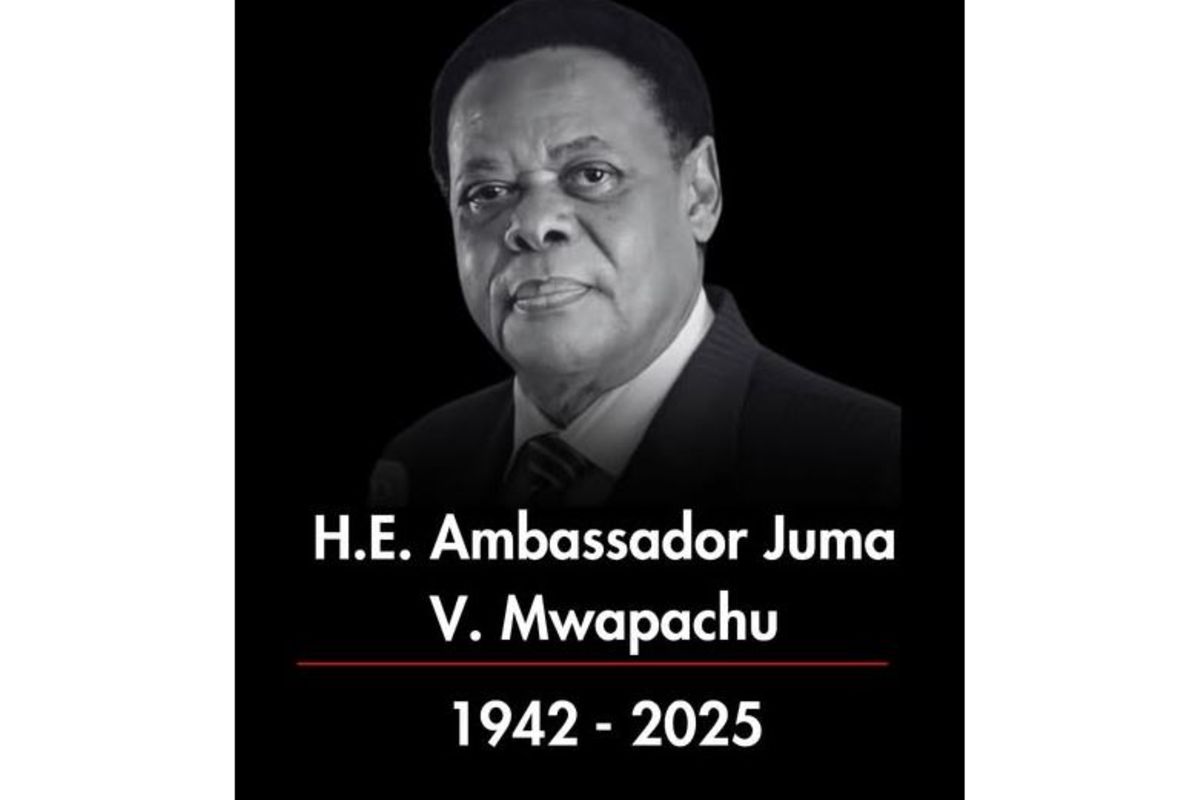Saturday, 12th August 2023, marked the launch of Ambassador Juma Volter Mwapachu’s autobiography, A Journey, a collection of his major speeches and writings. I must admit, I was delighted to see Mwapachu document his life story, especially since I once asked him about the idea of writing such a book, only to receive a dismissive response.
Few will fully appreciate how central Mwapachu has been to Tanzania’s development vision. Despite the challenges of our earlier socialist policies, Mwapachu never hesitated to explore the possibilities for Tanzania, advocating for new and more dynamic approaches.
Reading about his life reminded me of a book from the 1980s by a colourful Zambian public figure, Vernon Mwaanga, titled An Extraordinary Life. The message conveyed through Mwaanga’s book was so profound that Mwapachu’s illustrious life could similarly be summarised.
While some may view his past as erratic or peripatetic, it’s not entirely clear how the circumstances of the country shaped Mwapachu’s journey—especially when his original ambition was to study history at Oxford University. It is worth noting that the only political path Mwapachu consciously avoided was contesting for an electoral seat, a choice that may have been influenced by the political career of his elder brother, Harith Bakari Mwapachu. Harith had the calm demeanour suited for a political life, unlike Juma.
That said, a unique opportunity arose that Mwapachu would have found difficult to resist. One might argue that the closest he came to engaging in politics was during Benjamin Mkapa’s second term in office, around the year 2000. Some may counter this by citing his emotional investment in Edward Lowassa’s candidacy in 2015. No one can deny the level of personal commitment Mwapachu displayed, surpassing even his involvement in his brother-in-law Mark Bomani’s campaign in 1995. Mwapachu was so unwavering in his support for Lowassa that he left CCM on the eve of Nyerere Day in 2015, only to return less than a year later, after feeling out of place. At the time of his departure, he issued a powerful statement, which, regrettably, was not included in his book. It was, as some Brits might say, “a moment of madness.”
In 2000, however, a more fortuitous alignment with Mkapa led to Mwapachu being appointed ambassador to France. While the plan was initially to send him to Britain, a leak by the weekly newspaper RAI derailed the plot. With Mkapa’s focus on international relations, Mwapachu was likely considered a fitting candidate for a senior diplomatic role, although he ultimately became Secretary-General of the East African Community (EAC) in 2006.
Mkapa, in fact, enacted constitutional amendments that allowed him to nominate up to ten individuals to the National Assembly. This paved the way for Mwapachu to serve a five-year term in Parliament, which would have, in my view, significantly enhanced the stature of Tanzania’s foreign ministry, both domestically and internationally. We might have been speaking of the most distinguished foreign minister Tanzania has ever had.
Reflecting on Mwapachu’s broader connection to Tanzanian politics, Jenerali Ulimwengu, an independent Tanzanian thinker and writer, notes in Mwapachu’s book the special relationship he shared with Julius Nyerere, who treated him like a son. Mwapachu’s closeness to Nyerere was evident when, in January 1992, he was selected to represent the Commission led by Justice Nyalali, tasked with advising Nyerere on the future of the Union. Mwapachu was asked to present a proposal for a three-government structure, despite the sensitivity of the subject. Upon hearing the recommendation, Nyerere was outraged, declaring he would campaign against it, even threatening to leave CCM if the proposal was adopted. Mwapachu’s task, though daunting, was a clear example of the trust placed in him by Nyerere, but also an indication of the political courage required to challenge the status quo.
Despite Nyerere’s vehement opposition to any change to the Union’s structure, Mwapachu’s position, and the subsequent resignation of the Commission’s chairman, Justice Nyalali, raised questions about leadership integrity. Mwapachu himself has not weighed in on the possibility that Nyerere may have eventually embraced the three-tier government structure, much as he did with multi-party politics. It would be intriguing to hear his perspective on this matter concerning his “second father.”
Finally, I cannot conclude without recognising Mwapachu’s contribution as a public intellectual. In the early 1990s, he founded Change, a magazine dedicated to addressing the pressing issues facing the nation. It was a well-regarded publication that drew attention from international institutions. The magazine’s untimely demise, however, symbolised Tanzania’s decline into intellectual stagnation—a lamentable trend mirrored by the eventual disappearance of other academic publications.
When Ambassador Fulgence Kazaura, Chancellor of the University of Dar es Salaam, passed away in 2014, I immediately thought of Mwapachu as the ideal candidate to succeed him. Unfortunately, my hopes were dashed, as the position remained vacant for nearly two years before being taken up by the appointing authority. A recent event hosted by UDSM on Nelson Mandela only reinforced my frustration, as Mwapachu’s unmatched intellectual rigor seemed to have been sidelined.
Reading his keynote address on the theme of the University of Dar es Salaam’s 25th anniversary only reinforced my belief in Mwapachu’s pre-eminence as a public intellectual. He did not mince words in his critique of the university’s administration, calling it “old, archaic, and fatigued,” while lamenting the lack of basic data, delayed decisions, and a pervasive sense of apathy. This, too, is the legacy of Ambassador Mwapachu: a man who has given much to his country through his intellectual insight, his service, and his unwavering commitment to the ideals of development.
Well done, Ambassador Mwapachu, for an extraordinary life lived. May your autobiography be a valuable resource for future generations, offering wisdom and insight that will endure for many years to come.
This piece was published in The Citizen in 2023. Mr Mwapachu died on Friday, March 28, 2025
Crédito: Link de origem



